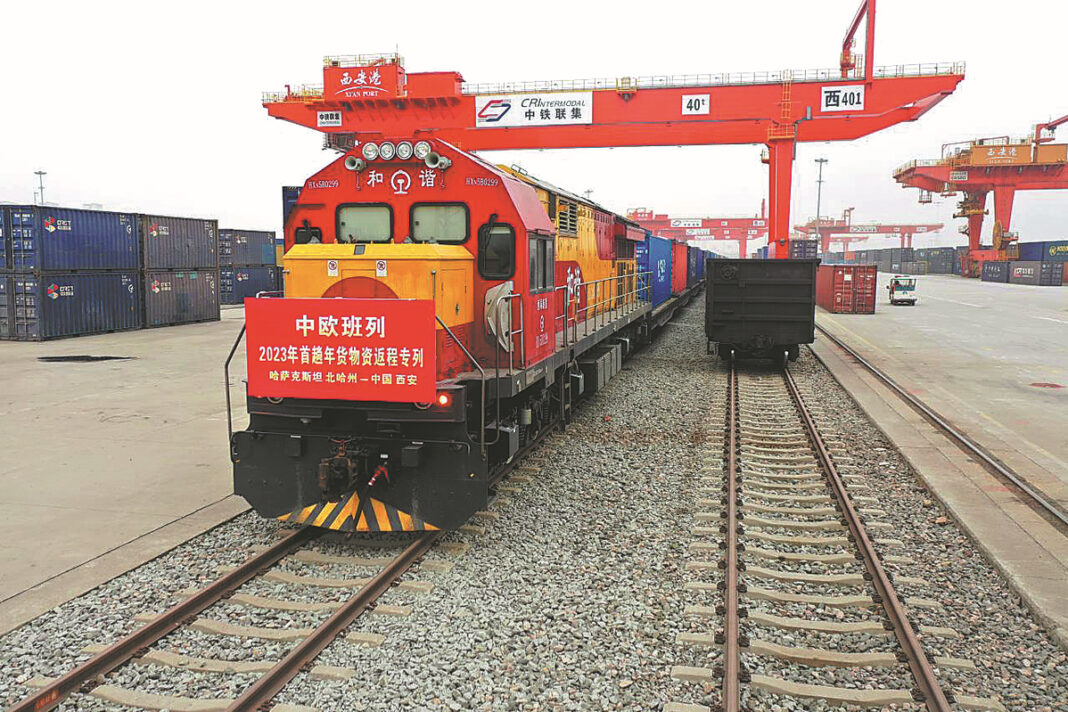BEIJING: Wu Jingchun has been working as chief dispatcher at one of China’s most important freight railway stations for 13 years.
The 58-year-old is not only a witness of, but also a participant in, the work of the freight trains that link China and Europe.
“One of the station’s priorities is to make sure that China-Europe freight trains can pass safely and quickly through the station and continue their journey,” said Wu, who works at the Fengtai West Railway Station in Beijing.
After a cargo carrier, such as a China-Europe freight train, starts its journey, it stops at dedicated stations — Fengtai West is one of them — for a number of reasons, including: changing drivers; inspections; recoupling and sorting work; and replenishing water stocks.
Fengtai West has the largest marshaling yard in northern China, boasting a complicated fan-shaped network of tracks and switches where railway cars can be sorted and made into trains that will head in different directions.
There are intertwined railway tracks and countless engines waiting to be coupled. Inspection workers walk through the trains and examine the status of each car to ensure that none has been damaged during their journey.
Freight trains from all over China gather at Fengtai West, going through the process of inspections, separating cars and changing engines in the classification yard.
When the trains are ready, railway workers see them off and wave flags to wish them a good journey.
Wu noted that an increasing number of freight trains linking China and Europe have passed through the station in recent years. During busy periods, he handles six or seven a day.
Most of those trains travel west from the northern port city of Tianjin along the route of the Beijing-Shanghai Railway. They stop at Fengtai West for inspection before continuing their journey, leaving China via the Ereenhot border crossing in the Inner Mongolia autonomous region. Such trains also enter China at the crossing.
Since 2021, more than 2,000 China-Europe freight trains carrying daily necessities, food, automobile parts, epidemic control supplies and other items have passed through Fengtai West, heading for Mongolia, Russia and Europe. By the beginning of this year, more than 200 China-Europe freight trains had passed through the station.
Wu is just one of many railway employees working to improve the efficiency of the network.
“To improve efficiency, we prioritize the handling of China-Europe freight trains so they can complete their requirements at Fengtai West as quickly as possible,” he said.
He added that it takes about 60 minutes for such trains to finish all the tasks before leaving the station.
–The Daily Mail-China Daily news exchange item






